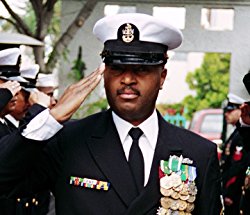A Quote by Paul Harvey
If you found yourself in a situation where you could either save a drowning man, or you could take a Pulitzer prize winning photograph of him drowning, what shutter speed and setting would you use?
Related Quotes
Sometimes I'd see my father, walking past my building on his way to another nowhere. I could have given him a key, offered a piece of my floor. A futon. A bed. But I never did. If I let him inside I would become him, the line between us would blur, my own slow-motion car wreck would speed up. The slogan on the side of a moving company truck read TOGETHER WE ARE GOING PLACES--modified by a vandal or a disgruntled employee to read TOGETHER WE ARE GOING DOWN. If I went to the drowning man the drowning man would pull me under. I couldn't be his life raft.
One thing about winning a Pulitzer, it means you know what the first three words of your obituary will be: Pulitzer Prize-winner. After winning the Pulitzer, I couldn't help but notice how people suddenly looked at me with a newfound respect, and would say, "He's an expert." On the negative side, I developed a terrible case of writer's block for awhile, because I felt like readers would expect every one of my columns to be prize worthy.
My son will forever travel through a moonless night with only the roar of wind for company.... A drowning man is not separated from the lust for air by a bridge of thought—he is one with it—and my son, conceived and grown in an ethanol bath, lives each day in the act of drowning. For him there is no shore.
Not Waving but Drowning Nobody heard him, the dead man, But still he lay moaning: I was much further out than you thought And not waving but drowning. Poor chap, he always loved larking And now he's dead It must have been too cold for him his heart gave way, They said. Oh, no no no, it was too cold always (Still the dead one lay moaning) I was much too far out all my life And not waving but drowning.
My paramount object in this struggle is to save the Union, and is not either to save or to destroy slavery. If I could save the Union without freeing any slave I would do it, and if I could save it by freeing all the slaves I would do it; and if I could save it by freeing some and leaving others alone I would also do that. What I do about slavery, and the colored race, I do because I believe it helps to save the Union; and what I forbear, I forbear because I do not believe it would help to save the Union.
When you’re confronted by a really difficult thing in your life, you’re faced with a choice: you can runaway from it, or you can face it, confront it, and work through it. But to work through it, sometimes feels like holding your own head below water when you’re already drowning. Your natural instinct when drowning is to get back up to the surface and give yourself some relief from that terrible situation…you just want to breathe again.































